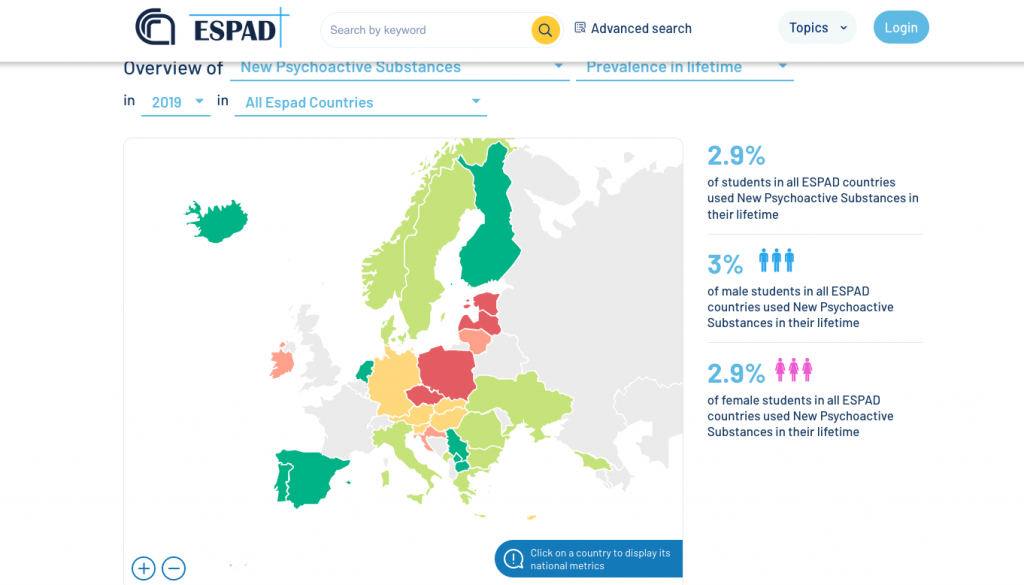
The European School Survey Project on Alcohol and Other Drugs (ESPAD) – a large international research project bringing together independent research teams in more than 40 countries – has launched a new data explorer tool developed by the Institute of Clinical Physiology of the National Research Council (IFC-CNR).
The portal contains over 20 years of data collected by ESPAD on substance use and other risky behaviours among 15-16 year olds.
“We very much wanted to develop this open data portal, not only to allow free multilevel access but also to increase the use of this exceptional collection of data that ESPAD has produced in order to monitor phenomena of health and social relevance for the formulation of prevention policies,” commented Sabrina Molinaro, Research Director at IFC-CNR and project coordinator.
The platform, containing data collected between 1995 and 2019, is structured around three levels to be easily accessed by different interested stakeholders: teachers, citizens, government institutions, associations, non-profit organizations, prevention experts and researchers.
The first level of access, on the homepage, provides access to maps, interactive graphs, latest results and new trends in terms of substances and risky behaviours.
The second level, which can be accessed using the keyword search, allows users to explore all the questions in the ESPAD questionnaires, the number of respondents and the frequency of answers by year, by country and by gender.
The third level, for advanced search, offers data exploration to expert users who can analyse and visualize data using a wide range of parameters, save their searches and download results. Free registration is required to access this area. The display of data exclusively in aggregated form ensures anonymity of questionnaire respondents.
“The portal offers a unique overview of available data on young people, substance use and risky behaviours in Europe and it is designed to bring the ESPAD study closer to those who wish to learn more about the project, thus bridging the gap between research and practice,” Molinaro concluded.

